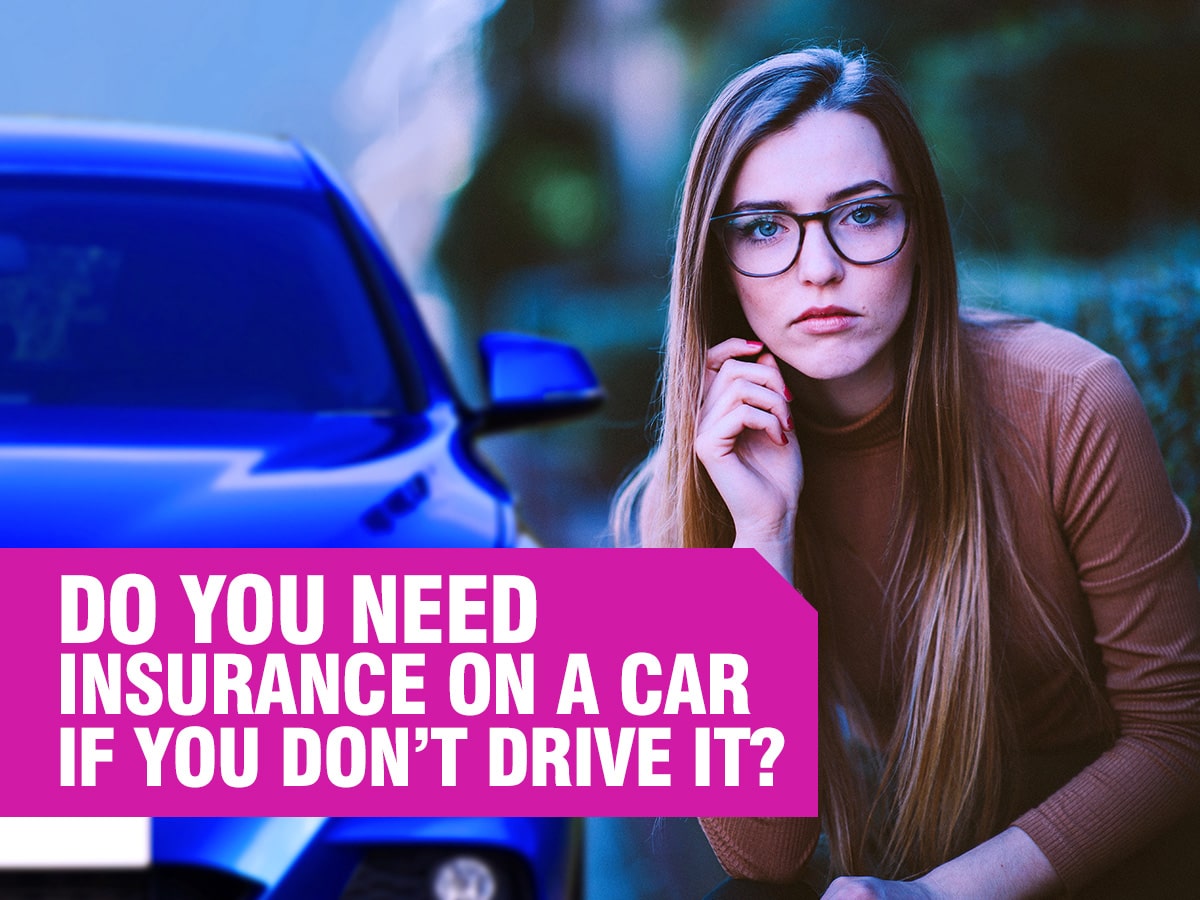Do You Need Insurance On a Car If You Don’t Drive It?

Many reasons can occur where people do not drive the vehicles they own. Perhaps they are taking a multi-month vacation, or maybe one of their cars is not suited for driving in the winter. Car owners often ask what they can do when they are not driving their vehicle, do they need to purchase a car insurance policy or can the car simply go uninsured?
The simple answer to this question is that registered vehicles in a state are required to have the minimum limits required for insurance. If the vehicle has an active registration, it is required to carry automobile insurance. It is possible to cancel your registration for a while so that you do not need to insure your car. The laws for this can vary quite a bit from one state to the next; you will want to check with your state to make sure this is an option and to learn how to go about following through on it.
It is also possible, with some providers, to reduce your insurance costs temporarily. Companies can offer a type of insurance called comprehensive only coverage. This insurance is sometimes available for vehicles that are in storage, and other situations may apply as well.
How Does Comprehensive Only, or “Comp Only” Insurance Coverage Work
Comprehensive insurance is the coverage that people purchase to protect their vehicle from fire, theft, vandalism, and other weather-related damage. Some companies refer to this type of coverage as either comprehensive only or "comp only." Comprehensive only insurance is used for protecting your vehicle during the times you are not driving it. Because it does not include the many other protections that people purchase in their automobile insurance plans as a stand-alone, this type of policy costs a lot less than people pay for total standard car insurance.
Keep in mind that a vehicle covered with comprehensive only insurance does not have the required insurance coverage to be driven legally. It is illegal to drive a car that has comprehensive only protection, and nothing else. Each state has a required amount of insurance to operate legally; this amount is called the minimum limit. It is also important to note that under comprehensive only insurance policies you do not have liability coverage, nor do you have collision protection. This means that if you are driving the vehicle, and you get into an automobile accident, you will be responsible for the entirety of the costs. You can also be subject to fines, fees, and other legal repercussions if you are caught driving without the required amount of insurance.
What are the requirements for vehicle “Storage?”
When looking to purchase comprehensive only insurance, you will want to look carefully at the definition of the word storage. Most companies require that your vehicle be kept in a storage location that is locked, such as a storage facility for vehicles or a locked garage. If the place you are storing your vehicle does not meet the requirements of your automobile insurance provider, your insurance company might not cover the damages to your vehicle from covered causes. It is pretty likely that they won't.
Vehicles that are stored in an unlocked or open location are considered to be "parked" as far as law enforcement is concerned. The same is true for your insurance company. Keep in mind that the more secure your car is, in terms of storage, the lower the insurance premiums will be for your vehicle.
People Can Insure a Car for Someone Else to Drive While Excluding Themselves from the Policy
Just because you own a vehicle does not mean that you need to pay to have yourself insured on that vehicle. It is possible to exclude yourself as a driver on a vehicle while adding someone else's name on to your insurance policy. This is a unique situation that requires the vehicle owner to contact the insurance company. Most companies will want an explanation surrounding your situation, and will likely ask a few questions before providing the policy. Many insurance providers are willing to offer these insurance plans, particularly if the person being insured is a family member and living in your household. It is likely that they will ask for background information, such as driving history, for the person who is being insured.
What If Nobody is Driving the Car for Months
Some situations arise where a person owns a vehicle that is either an extra vehicle or a vehicle that nobody will be driving for many months. If anyone intends to drive a vehicle at any time, liability coverage is needed. If you let your registration lapse, you will no longer be able to drive the vehicle, but you will also not need to pay insurance on the vehicle. Many people decide that dropping full coverage insurance from a car that will be driven very seldom is the best option, and saves the most money. Some people also choose to keep comprehensive insurance coverage on the vehicle to help protect them in case of vandalism, theft, and natural disasters.
Most states require car owners to have insurance on their vehicle, though there are a few ways around that if the vehicle is not being driven at all. If the car you own is registered, you will need to get the minimum legal requirement for insurance in your state. Fortunately, comprehensive only coverage is available for people who store their vehicles in a locked storage place.
Speaking with your insurance company is the best way to determine what options they offer for people who are not driving their vehicle for an extended period. Car insurance companies are interested in keeping your business, and if there are solutions that will fit your situation, they are happy to assist.







